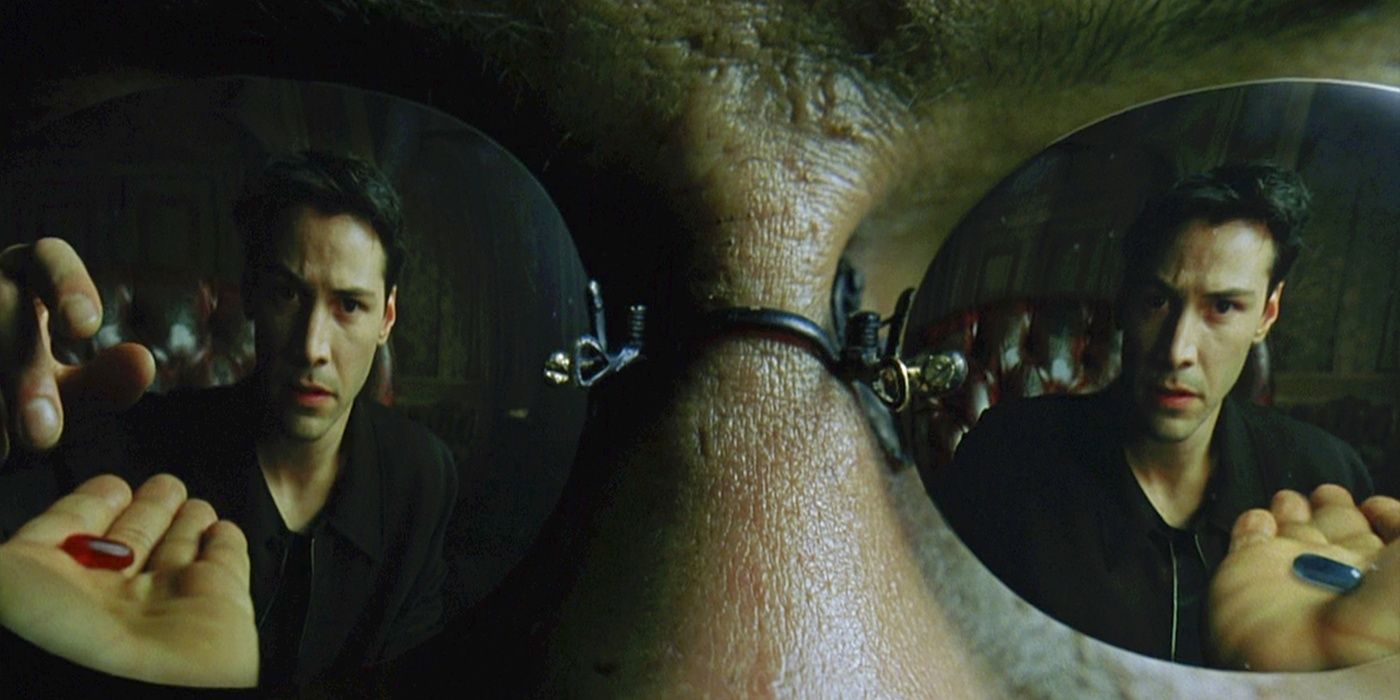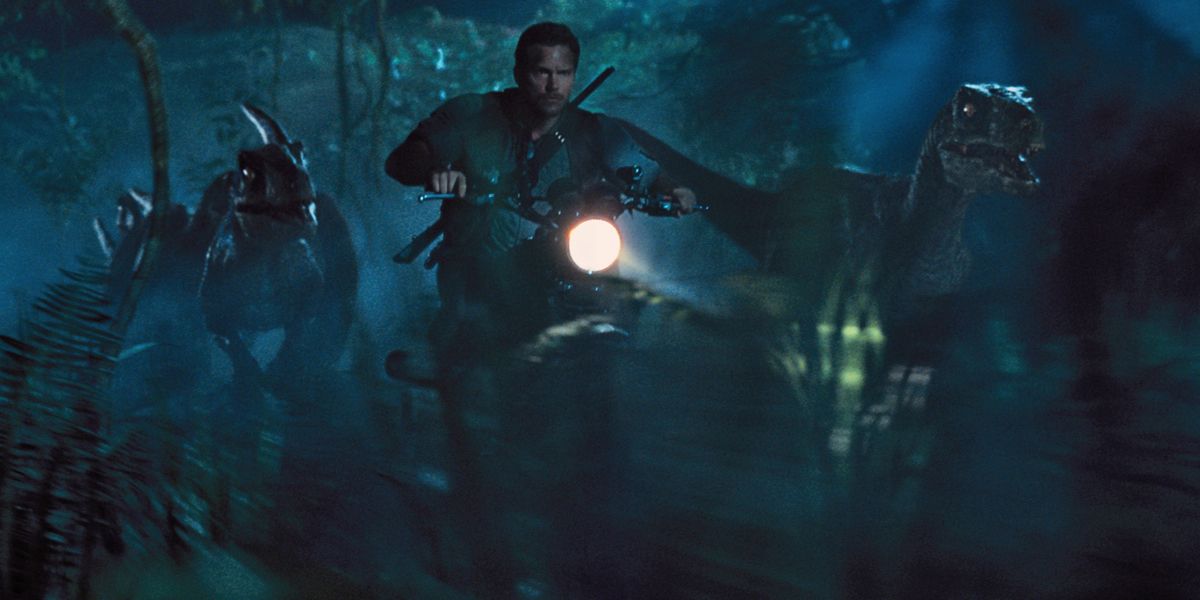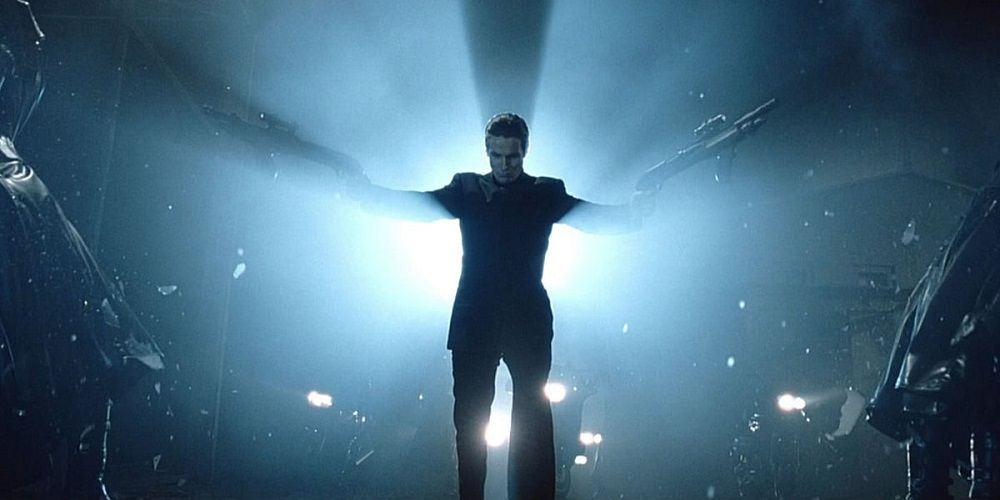At first glance, the ESTP might look like the kind of MBTI® personality type that isn’t that invested in science or knowledge, given that they tend to be the bold type, usually impatient and more prone to leaping before looking than the other way around. Don’t be fooled, however. The ESTP does like knowledge; they just like seeing how things can be put into action rather than spending hours ruminating on grand philosophies that ultimately go nowhere.
For the discerning (and impatient) ESTP looking for a science fiction film that hits all the right notes, there are quite a few out there that they will definitely enjoy.
10 Love: Annihilation

There’s no question that the 2010s have been something of another golden age for science fiction films, in large part because of films like Annihilation. Focusing primarily on Natalie Portman’s character Lena, a cellular biologist, it follows her adventure into a strange zone where an alien presence has caused everything in its radius to mutate in strange and often terrifying ways.
Though the film raises some important questions about the nature of identity and the stability of the self, it never loses sight of Lena’s central quest for answers.
9 Hate: The Matrix

Sometimes in science fiction, the philosophy part of the narrative can outpace the rest of it, and from the ESTP perspective, that is exactly what happens in The Matrix.
While this personality type might enjoy some of the ways interesting views of the future, such as humans being harvested for the energy they provide for thinking machines, they will soon begin to grow weary of the ways in which the film seems to indulge in so much philosophizing.
8 Love: Arrival

The best science fiction films for the ESTP are the ones that manage to combine philosophy with detail, making sure that one doesn’t outdo the other. This film succeeds in balancing the two, with its story focused on a linguist tasked with translating the cryptic messages delivered to Earth by an invading race.
Despite its loftier philosophical goals of asking questions about the relationships between and among humans, and the role that language plays in those relationships, it never lets itself get lost in the vagaries of philosophy but instead keeps the viewer invested in the unraveling of the film’s central mystery.
7 Hate: Gattaca

One of the things that science fiction returns to again and again is genetics, as well as the consequences that the study of genes has for important consequences. Gattaca, released in 1997, explores just these issues.
While it was well-received by critics for the ways in which it touches on the consequences of genetic selection, there are times when its concentration on the philosophical questions that it raises threatens to overwhelm the narrative, to say nothing of the characters.
6 Love: Jurassic World

Proving that this franchise is not yet extinct, the fourth addition to the Jurassic Park series proved to be an enormous hit with audiences, earning well over $1.5 billion at the box office.
While it might lack some of the philosophical and scientific nuances of the original, there’s more than enough adventure here to make sure that the practical and action-oriented ESTP has a good time while viewing it.
5 Hate: Brazil

It’s not really surprising that a film directed by Terry Gilliam, a veteran of the comedy group Monty Python, would explore the more absurd sides of the science fiction genre. While this might appeal to those who don’t like their science fiction to take itself too seriously, there are many things about Brazil that will definitely be a turn-off for the ESTP.
What’s more, there are numerous moments where the film seems so caught up in its own clever use of special effects that it loses track of the story it’s supposed to be telling.
4 Love: Solo: A Star Wars Story

Sometimes, it’s fun to speculate about what personality type characters from films would be, and there is no question that Han Solo would be an ESTP. He definitely has a tendency to leap before he looks, though his boldness also means that he’s usually able to get himself out of any of the scrapes that he manages to land himself in.
Though this film underperformed at the box office (one of the few Star Wars films to do so), the ESTP will still appreciate the rakish charm and wit of the screenplay, as well as Alden Ehrenreich performance.
3 Hate: Interstellar

Christopher Nolan has developed a well-earned reputation for creating films that ask deep questions about the world and for forcing viewers to question their most basic assumptions about how things work.
Unfortunately, Interstellar tries to do that, but it gets bogged down in a rather sentimental narrative trope, one that focuses on a father’s undying love for his daughter. This rather distracts from the film’s more profound points, and it becomes very self-indulgent in the film’s second half, which ESTPs are unlikely to enjoy.
2 Love: The Fifth Element

The Fifth Element, which sharply divided critics on its release, has since accrued a warmer reception in the years since. While some might find the film challenging, the ESTP will enjoy certain aspects of it, particularly the quest aspects of the narrative.
Just as importantly, they will also find themselves enjoying how the film is structured around personal bravery and a noble effort to prevent the catastrophic destruction of the Earth.
1 Hate: Equilibrium

While some science fiction manages to get into the deepest aspects of the human psyche, others tend to skate along the surface. As a result, they might seem to be saying something, but instead, all of their ideas seem superficial.
That was certainly the case with Equilibrium, which the critics did not like and which did not do very well at the box office. The ESTP has little time or patience with philosophy or abstraction for their own sakes, and so this film will not work for them.
from ScreenRant - Feed https://ift.tt/3081uii



0 Comments